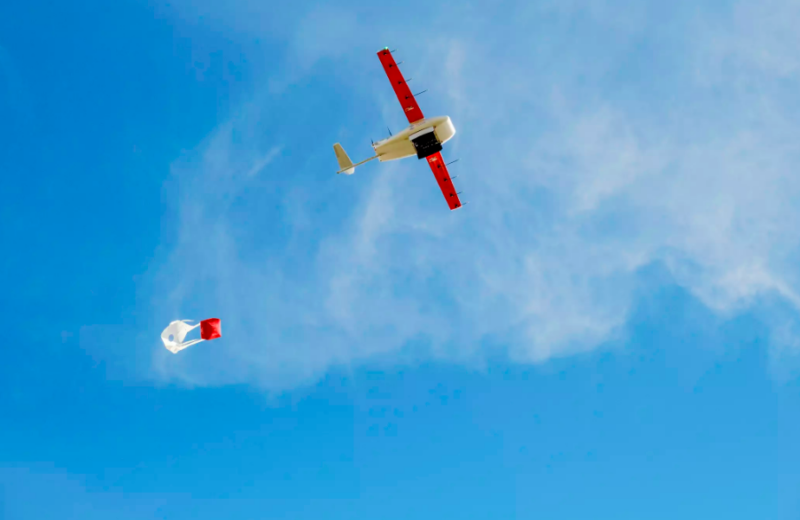FAA issues initial BVLOS approval for Zipline

The FAA has authorised Zipline International to deliver commercial packages around two US locations using drones that fly beyond the operator’s visual line of sight.
Zipline, a Part 135 operator, will use its Sparrow drone to release cargo via parachute in Salt Lake City, Utah and Bentonville, Arkansas. The firm, which called the decision “historic”, said it will help enable broad integration of autonomous aircraft into US national airspace. Until recent approvals were handed to Phoenix Air Unmanned, UPS Flight Forward and uAvionix, even the most advanced long-range drone deliveries in the US required visual observers. This latest approval will see the longest-range drone delivery flights to date in the US.
“Today we use 4,000 pound gas combustion vehicles driven by humans to do billions of deliveries across the country. It’s expensive, slow and bad for the environment. This decision means that we can start to transition delivery to solutions that are 10x as fast, less expensive, and zero emission,” said Keller Rinaudo Cliffton, CEO and co-founder of Zipline. “It means that Zipline hubs across the country can now go from serving a few thousand homes to serving hundreds of thousands of homes each year and millions of people, which will save time, money and even lives.”
Data collected from operations will inform the FAA’s ongoing policy and rulemaking activities. The agency’s long-term goal is to safely integrate drones into the National Airspace System rather than set aside separate airspace exclusively for drones. This approach is consistent with the FAA Modernization and Reform Act of 2012 and the FAA Extension, Safety, and Security Act of 2016. The 2016 Act directed the FAA, alongside NASA, to develop a plan for Unmanned Aircraft System Traffic Management (UTM).
The decision comes off the back of Zipline’s strong safety record and years-long collaboration with the FAA, it said. The firm also worked closely with the agency to show rigorous testing of its onboard perception system, its safety processes and provided detailed data from its commercial autonomous flights.
Okeoma Moronu, Zipline’s head of Global Aviation Regulatory Affairs, said: “We applaud the FAA for taking a major step to integrate autonomous drone delivery into the airspace. This will enable more commerce, new economic opportunities and greater access for millions of Americans. The FAA has incredibly high safety standards and it’s a testament to the entire Zipline team that our delivery drones are entrusted to fly and deliver at scale, over populated areas, in the most complex airspace in the world.”
Zipline operates at national-scale in multiple countries where it delivers up to 140 miles round trip, and began serving the US in 2020 delivering medical supplies during the pandemic.
Zipline’s long-range system, Platform 1, operates on three continents and makes a delivery every 70 seconds. The company also recently announced a number of new healthcare partners along with customers across the retail and food sectors.






